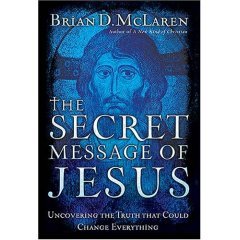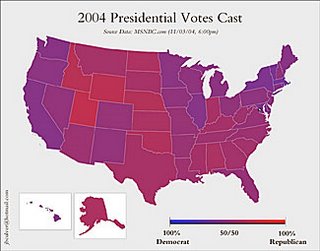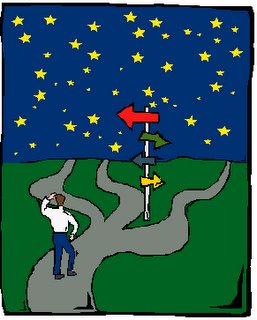This is Part II of the intercast dialogue between myself and Jeff Harris from the ATC Pagan Information Network. We dwell primarily on the issue of God/divinity and the nature of ultimate reality. Afterwards I share my thoughts on the dialogue --specifically dwelling on that final question of the nature of God.
For those who like to read, and since it gets kind of deep, here are my notes (I pretty much read word for word) from my closing comments:
Let me know what you think!
-Leif
---------Post intercast thoughts -------------
I think what is standing out most of all to me about our conversation is the topic we came to towards the end –questions about the ontology of God, divinity and ultimate reality. Let me try and explain what I mean and then I'll pop back to its relevance to this conversation.
In my early Christian years it seems I developed a habit of interrogating people with a series of binary questions that were designed to lead them to the truth –that is, the beliefs I held at that time. Everything was an 'either/or". At the top of the question-tree was the question “Does this person believe in a spiritual/transcendent realm, or are they an atheist?” “If they did believe in a transcendent realm, then did they believe in a personal God or an impersonal force” "Did they believe in one God or many, and what was that God's nature" and then I’d keep moving down the tree to find out if they believed that God was actually a person, Jesus Christ, and then down to various denominational differences like being baptized in the spirit, etc.
About 5 years ago, as I was exploring some of the foundations of my beliefs through graduate theological work, some of those binary/black and white distinctions started to become grey. For example, was God separate from us or inside us, is God personal or impersonal?
Ironically I think it was the bible itself that started the liberalizing process on these issues: Man and woman was made in God’s image, so that meant God must be beyond our gender-biased language (most Christians almost exclusively use He as you probably know) .And weren’t their many times where the Spirit of God was referred to using impersonal language –“it hovered over the earth” “it blows where it wills” etc. One day I was thinking how I was made in the image of God and how sometimes I referred to myself as "I" and sometimes I referred to my body as an 'it', as in "My hand – it is healing.” I noticed that there are dimensions to myself, perhaps a majority of myself, that are totally outside of my control --operating and being influenced by various laws of nature. Do I will my heart to beat? Do I command the trillions of cells within my body to regenerate and carry out their functions? Hardly. “IT or they operated by themselves".
Anyway, you get the point --this made me realize that old distinctions of male/female and personal/impersonal were simply human constructs --they were both true to a degree, and they were neither true if said alone. God’s nature is an unfolding. I even came up with a theory, one that I am still exploring to this day: perhaps you could say that the 'western/theist" religions learned about and emphasize the personal/transcendent (separate/outside) side of God/ultimate reality while the eastern religions learned about and emphasized the impersonal/immanent/force (connected/inside)-like side of God/ultimate reality. I'm curious if others have made this kind of analogy. (As a relevant side note --even the idea of eastern/western religions breaks down when you realize that all religions had their origins in their east. Viewed this way, we both have much to reveal to each other and correct in each other. I think there are even correlations to how those cultures with their religions end up viewing human relationships and society --one emphasizing independence and the other dependence. But that’s a much bigger topic.)
Around the same time, other questions relating to the nature of God kept cropping up. (These weren't all abstract and theoretical by the way, they would come up again and again in conversations with others and as I wrestled to relate and communicate with a God who I was told was personal and loving and communicative).
For too many reasons to go into here and now, I also wrestled with the concept of the trinity. It just seemed too human and systematic of a concept. Besides, I used to say, its not even in the bible. Sure there are scriptures that talk about God as a father, Jesus as God's son, and that talk about the holy Spirit --but if it was meant to be systemized in that way, why wasn't there a 'holy binity' in the OT before Jesus came (I teased my Christian friends?) Elohim, a Hebrew word for God, is plural and we have language like "Let US make humans in OUR image" –there are various theories about this.Besides, what if God incarnated on other planets, and on and on....
Eventually I came to the opinion that I hold now: The trinity is an excellent metaphor for the truth that God is both a unity (the 'oneness') and a plurality --together they demonstrate comm-unity. But taken literally, it is too tidy and closed and the systemitizers become too self-righteous in their 'figuring God out'. If you only emphasize the oneness, reality turns into a grey goo without differentiating, and there is no room for love --because love takes more than one lover. If you emphasize only the plurality --there is no unifying center that originated all things, that holds all things together and that can restore all the conflict that has arisen out of our plurality/diversity.
But then comes the question of humanity's relationship to God and ultimate reality. In the past it was easy --God was the biggest piece of the picture, the external king, the life-giving father, the creator of all things and the one who held it all together. But then the bible had to go and mess that all up to --consider the following scriptures and ideas:
God's omnipresence -what does it mean that God is literally everywhere. (Wouldn't this seem to support the pantheist who believe that God is also everyTHING?)
"In him we live and move and have our being"
"May they be one as we are one"
"We are his body" "I am the vine, you are the branches"
"when you feed the poor, you are feeding me"
"God's breath originating us"
"the kingdom of God is within you"
-all these images, at the least, point to a kind of dependence or interdependence of all creation on God that should at least make us comfortable with saying something like "I am part of God." Yet the majority of Christians, if they heard this, would shudder like the Pharisees shuddered when Jesus described his relationship to God as son, or according to John, when he made illusions to the divine name of Yahweh saying "Behold, before Abraham was "I AM"
I am now getting beyond myself, as this is bringing up the very questions that I am wrestling with these days. Questions like, who was Jesus, how was he different than us, how am I separate and connected to God and what is the nature of this God I speak of as separate than myself?
Bringing it back to the interview with Jeff Harris from ATC...hopefully you, like me, see that there is perhaps much more common ground between open-minded Christians and open-minded pagans --they tend to emphasize the impersonal and plural aspects of 'divinity' revealed through nature, allowing IT to wear a personal mask only as it helps them in various ways, while Christians emphasize the personal dimension of God, revealed divinely through various modes of communication and experience.
I'm thinking now of various things that are hinting to me how some of these questions and issues might be resolved:
-star-trek type images of talking cosmic clouds, or
-quantum level physics where paradoxes breathe, or
-an internet friend who talked with me about the 1st, 2nd, and 3rd person relationship with God
-Another internet friend and listener who is emphasizing God's presence within us, and the need to move beyond our heart and down to a feeling/sensing/following the spirit level. His total trust and confidence in God and in me that all shall be well and that big changes are coming soon.
The truth that I am totally convinced of is that these truths will become much more clear, more known, more experienced and understood as I starting LIVING out simple truths about love - like caring for those in need, standing up for justice, and more.
The recurring lesson in my life about the importance of accepting reality as it is, about being present in the moment, about letting go of my fears and agenda and impatience...
These things and more give me hope, though I am often full of doubt and impatient despair, that I will soon be experiencing more of God's loving magic, and that it/she/he is here now just as much as God will be there then.
Tags:
God, ultimate reality, divine, divinity, pagan, paganism, atc, interfaith, intercast, interview, dialogue, love, Bleeding Purple Podcast, Leif Hansen, Podcast, Wonder, Hope, Love












